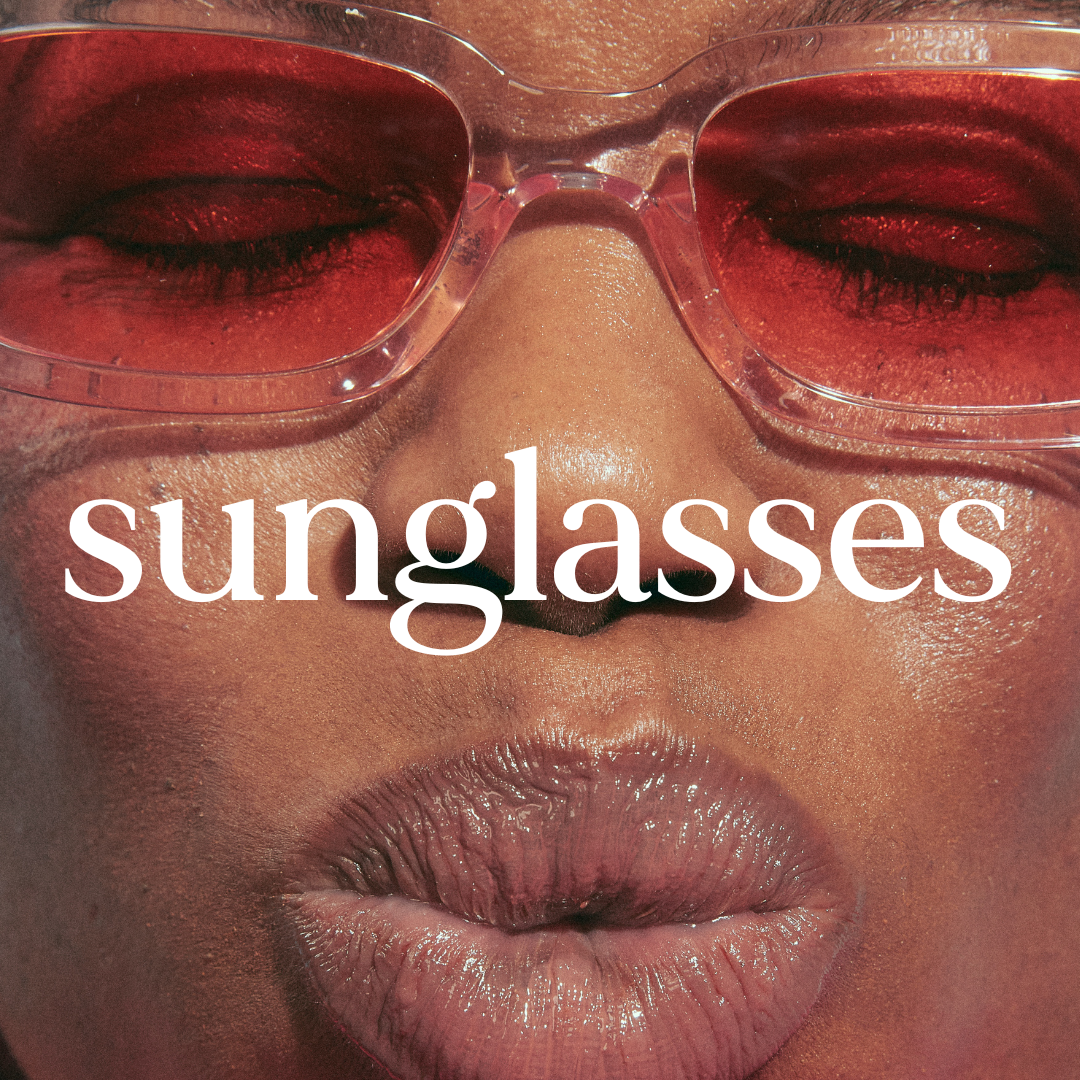
Sunglasses are a timeless fashion trend that come in all shapes and sizes, but on top of that they are actually crucial to protecting your eyes from the sun. If you’re here you definitely take sun protection seriously when it comes to your skin, let me guess, you’re wearing the everyday one, the one for your lips and the one for your body… Same! But hey, let’s take that even further and get those sunnies on and protect your eyes as well!
Making sure you wear sunglasses when you go outside should be second nature and if it’s not… Well, here are three reasons it should be!
Your eyes are 10 times more sensitive to UV than your skin
Yeah, you read that right, 10 times! We all know the sun isn’t great for our eyes yet, only about 7% of us know of all the risks this can have on our eyes and definitely not the extent of damage it can do. We’re talking cataracts, corneal sunburn and macular degeneration just to name a few. We’ll definitely be thinking about that next time we think about using our sunglasses as a headband instead of protection… Because of just how sensitive our eyes are to the sun, you’ll want to make sure your sunnies have 100% UV protection to ensure that they filter out all the harmful UV rays that would otherwise get through and damage your eyes. At the very least they should have ‘CE’ or British Standard EN ISO 12312-1:2013 marked on them. This basically means they are guaranteed to offer a safe level of protection.
Shady jargon could be misleading you
There are a couple of words that you’ll see when buying sunglasses that may have you thinking you’re buying a great pair of glasses and getting the protection you need but surprise surprise, everything is not always as it seems. Let’s break down a couple of the terms that you should look out for:
- Polarisation: this is important to look at because it actually has nothing to do with UV light absorption, however, many polarised lenses are now combined with a UV-blocking substance. Double check to make sure that the lenses still do provide 100% UV protection or you may be fighting a losing battle!
- Tint: this may be the biggest misconception of all because the colour is purely cosmetic, darker lenses do not necessarily mean more protection. They may help you see a bit better on a super sunny day, but there’s no guarantee that they are actually protecting your eyes, unless they have 100% UV protection, in which case you’re golden.
- UV400: so whilst this isn’t misleading, it can feel a little scientific. UV400??? Uh what?! Well, this is actually the best level of protection you can get! UV400 refers to the UV rays at the top end of the UV spectrum all the way to the 400 nanometer wavelength so you’d be getting the ultimate protection for your eyes at this point and realistically you deserve nothing less!
Sunglasses protect more than just your eyes
The best protection you can get from the sun is actually physical blockers such as clothing, hats and sunglasses (and then obviously sunscreen!). You can also optimize the protection you get from these depending on the ones you choose. When it comes to sunglasses there are two things to consider that go beyond protecting just your eyes: style and size.
You will probably want to consider getting a wraparound style meaning you want glasses that cover the sides of your eyes and the skin between your eyes and hairline. One way of doing this and avoiding the leather aviator side pieces that may not be everyone’s vibe, is to go for a pair that has wide temples, this will protect from UV rays that will try and creep in from the sides not just helping protect your eyes from a bit of sideway sun but also the skin on the side of your eyes and face.
When looking at size, although small lenses are in, oversized shades may still be the way forward and let us tell you why! The skin around your eyes is the most delicate aka prone to ageing and the sun does not help with that, so the more protection they have from UV rays, well let’s just say wrinkle creams could NEVER!
Resources:
Transitions UK. Transitions European Study, 2008
